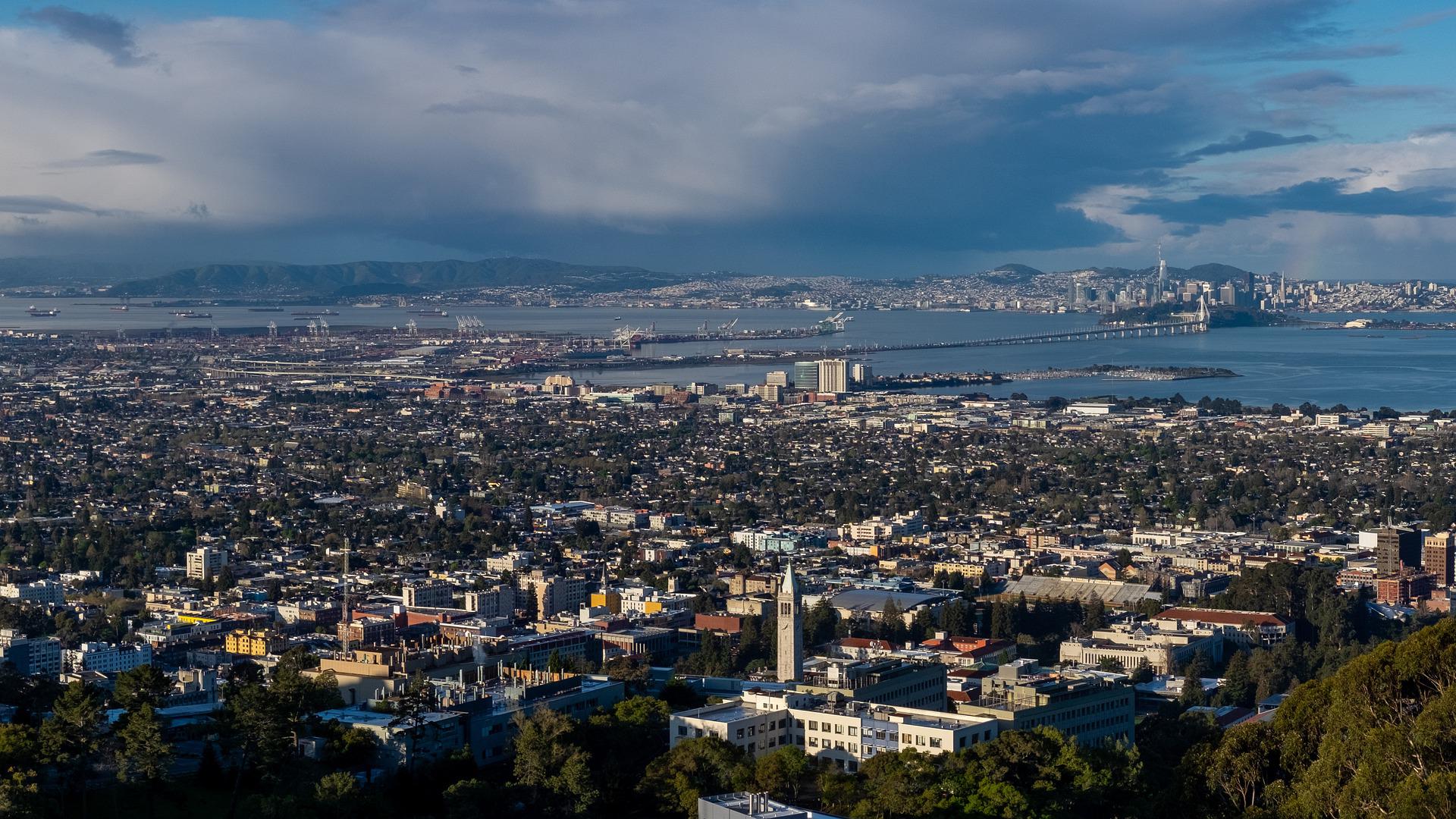Author Sarah Rose Leonard
Published 02/09/2022
By Sarah Rose Leonard, dramaturg and friend of Jonathan Spector
When I go visit Jonathan Spector I ride my bike.
From my house, I ride the length of Berkeley (the setting for Eureka Day) in 40 minutes. To the west I see the Pacific Ocean, Golden Gate Bridge, San Francisco, the rolling Marin headlands, Alcatraz Island. To the east, tree-lined hills are dotted with homes that belong to ageing hippies that now cost over a million dollars and are in danger of wildfire.
I bike through my parents’ neighbourhood, where ‘Everyone is Welcome Here’ signs, Tibetan buddha statues, and massive succulent plants sit in front yards. Beat poet Allen Ginsburg lived here, hosting guests on the floor on meditation mats (I recently gave my mom’s 1970s mats to a friend who actually meditates). Teddy bears peek out of many windows. The bears remind us that we aren’t alone, leftover from when everyone took walks during the early days of the pandemic. In Berkeley, paranoid neighbours crossed the street to avoid each other. A sign put up on the narrow path by my house read, ‘THIS PATH IS TOO NARROW FOR TWO PEOPLE TO PASS EACH OTHER (LESS THAN 6 FT). PLEASE FIND ANOTHER WAY TO GET TO THE SHOPS’. A perfect Berkeley specimen. Passive aggressive, very concerned, politically involved, trying to help, and yet, incredibly rude.

The neighbourhood previously known as the Gourmet Ghetto (recently renamed due to a heated debate about how the word ‘ghetto’ was derogatory) boasts the Cheeseboard Collective, a delicious pizza, cheese, and bread shop. It was one of the first collectively-run organisations in the country, a trend that has taken off. Across the street is Chez Panisse, the restaurant whose chef Alice Waters founded the worldwide ‘slow food’ movement that’s devoted to cultivating farmers’ markets and eating locally.
I pass through Downtown Berkeley, hugged by the University of California, Berkeley (Cal) and the 3,000-student high school. Our theatres, art museums, and a dizzying array of multicultural restaurants are here, as are many of the unhoused population and the city hall where our legislature voted to de-gender municipal codes, changing the word ‘manhole’ to ‘maintenance hole’.
Downtown is ugly, but never dull. On a typical bike through I pass someone half naked preaching about Jesus, pot-smoking students eating burritos, ageing hippies sorting through used bookstores, a well-dressed hipster couple (probably gentrifying tech workers) with iced coffees.
The Free Speech Movement began here in 1964, a Cal student-led revolt calling for the administration to lift a ban of on-campus political activity. It was the first mass act of civil disobedience on an American college campus in the 1960s, and it sparked the nationwide protests against the Vietnam War.
My next stop is the Ashby BART (Bay Area Rapid Transit — our slow, provincial subway) Flea Market, a raucous open market with a huge drum circle. The market will soon be levelled for a large apartment complex. Flanking the BART station are antique shops, a vegan Mexican food spot, an old musty building that once housed an outdoor gear shop, and Berkeley Bowl, the famed supermarket full of organic produce, gluten-free bread, and every herbal remedy you’d ever need to clear a sinus.
I turn uphill and pass the bilingual Sylvia Mendez Elementary School, named for a civil rights activist who helped pave the way for school integration in 1946. As I bike past, I hear children playing and calling out to each other in Spanish.

I pull up to Jonathan’s purple-painted house. His wife Molly and I went to the same Jewish day camp, where we were allowed to sit out of games like Capture the Flag and make friendship bracelets if we preferred. As kids, Molly and I learned about Martin Luther King Jr.’s legacy. We celebrated Indigenous Peoples’ Day on what I wouldn’t learn until college was actually Christopher Columbus Day. We hiked the wooded hills and spotted wild bunnies. We paid tribute to the hippy soul of our hometown buying tie-dyed shirts on Telegraph Avenue. At both of our schools we learned we were special.
We, like the offstage children in Jonathan’s play, were destined to ‘be the change we wanted to see in the world’… which is a quote I saw on a bumper sticker on a Prius in Berkeley (falsely) attributed to Gandhi.
Most days I don’t feel I’d make Gandhi or Martin Luther King Jr. proud. But Berkeley did teach me to act according to my values, and that I can happily say, I’m constantly trying to do.